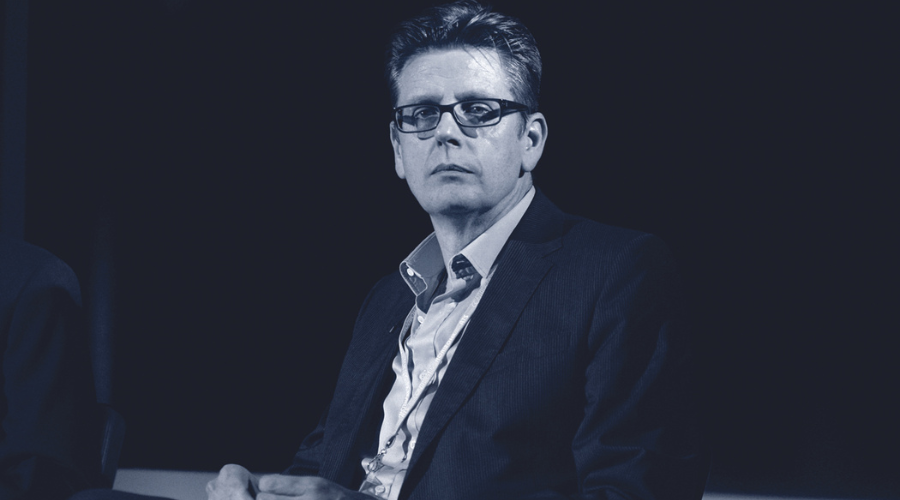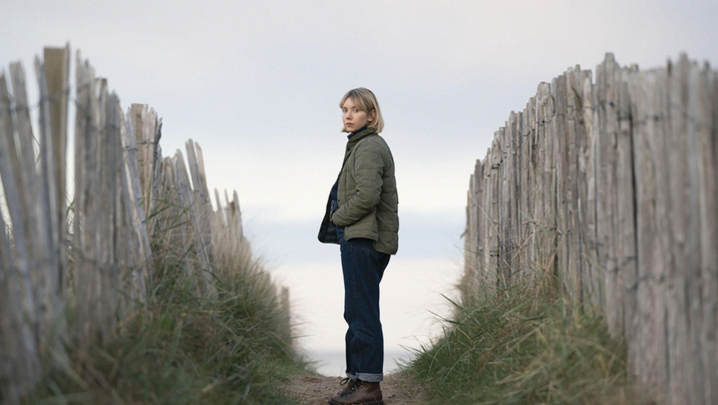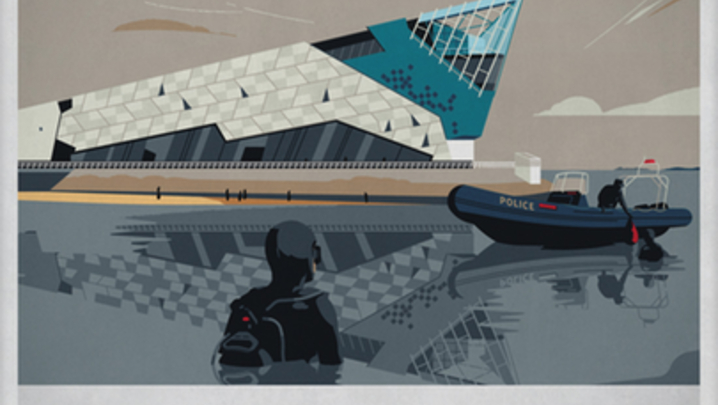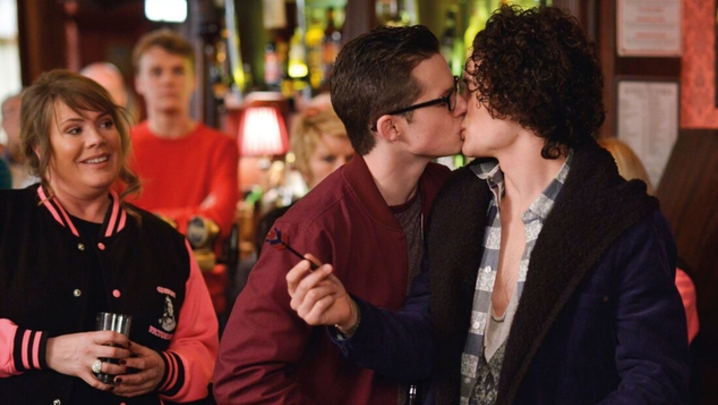In his Anthony H Wilson Memorial Lecture, David Liddiment recalls how the ITV company fostered a unique and enabling creative culture
The lack of training grounds for talented new TV writers and directors has been branded “intolerable” by David Liddiment, one of the most influential commissioners and broadcasters of the past 40 years with a career that has spanned both ITV and the BBC.
Delivering the Anthony H Wilson Memorial Lecture to the RTS North West, he recalled his own career development and that of luminaries such as Sally Wainwright, the creator of Happy Valley, who began her career as a Coronation Street writer.
Liddiment told his attentive audience at Manchester Hall how the people who ran Granada Television had allowed him to take on new roles with little experience. He joined the Manchester-based ITV company – widely admired not only for Coronation Street but for its current affairs and drama serials such as Brideshead Revisited – in 1975, aged 23, as a scriptwriter in the promotions department.
He worked his way up as a factual researcher and director before becoming executive producer on Coronation Street and Head of Entertainment, developing ITV hits that included Stars in Their Eyes, You’ve Been Framed! and This Morning.
At the same time, writers such as Kay Mellor and Paul Abbott graduated from Coronation Street to Children’s Ward, Cracker, Fat Friends and more.
During a post-lecture Q&A with producer Nicola Shindler, she remarked: “We don’t have those training grounds now. There are very few places any more for people to experiment and be brought through.”
Liddiment replied: “That’s an intolerable situation. We have a responsibility to exercise their muscles.”
The audience heard how the likes of Waterloo Road and Hollyoaks encourage new writers. But, with the dominance of independents and the absence of in-house production departments, it is harder for them to graduate to other dramas.
Liddiment is Creative Director of All3Media, which he co-founded in 2003, the same year he was presented with the RTS Gold Medal for outstanding services to television. He has never lost his childhood passion for the so-called box of delights: “Television was just the coolest thing. There was something thrilling about watching the same thing as everyone else.”
Confiding the secret of the “Granada magic”, Liddiment said: “It wasn’t a company hung up on departments or titles, like the BBC. People were called head of this or that, but there was no bureaucracy beneath them. They were all very accessible and hands on. Granada’s structure was not hierarchical, and its leadership was creative, not just interested in making money or building empires. They got out of bed to make great programmes and that culture spread around the building.
“Granada was an integrated producer broadcaster with everything needed to make a show on site at Quay Street. It had the right to decide what to make for the ITV network and made some maverick and risky decisions.
“Denis Forman [one of the founders of Granada and an influential executive at the company] commissioned The Jewel in the Crown, a hugely expensive 14-part drama shot on location in India. It was an extraordinary enterprise, especially as the budget depended very much on a US pre-sale and they were just not biting. Denis started filming anyway, cut episode 1 to show to PBS and got a deal.
“As a programme-maker, it was a sackable offence to talk to the sales department. Sales would tell you that it needed to appeal to a particular audience, but Denis thought listening to that led to reductive TV – it only looked back at what was successful and not forwards.
“The really talked-about, zingy shows that trigger extraordinary performances and say something important about the human condition don’t come about that way.”

Granada fostered Liddiment’s career, putting him in charge of doomed soap Albion Market, after which he executive produced Coronation Street for six years. There, he helped to nurture Wainwright, Abbott, Mellor and Russell T Davies.
He said: “Coronation Street was the most extraordinary place to bring on talent. Part of the Granada tradition was that writers of the Street graduated to other dramas… to have four top-quality writers in one place was just staggering.
“They saw something in me, too. It was a classic Granada thing to get someone with very little experience to try to save a soap opera, and then to put ITV’s most important show in the hands of someone who was only 34. They wanted to bring people on and bring out the best in them.
“People were recruited on personality more than their CV. Granada put a lot of effort into developing talent and that’s an important lesson for all of us.”
Shindler commented: “That ability to move across genres and jobs is so extraordinary and seems idyllic now when we think how regimented we are.” The producer of such series as Happy Valley, Scott & Bailey, Last Tango in Halifax and It’s a Sin added: “I joined Granada in 1993, finding a creative environment that welcomed ideas and risk-taking.
“I was a script editor on a new drama that Jimmy McGovern was writing. ITV had realised it had seven hours to fill and wanted a series, so it asked Granada, and Jimmy wrote Cracker. It’s incredible now to think of it. There’s no longer the ability to say: ‘Make seven hours of anything,’ and that’s a shame.
“I never want to make telly that’s just on in the corner, I want to get under people’s skin. That’s what I got from Granada.”
Among the RTS audience was actor Shelley King, who plays Yasmeen Nazir in Coronation Street.
"The quality of the Street is extraordinary given that they make six episodes a week"
She said: “I had a mental-abuse storyline that was character-based and very courageous. But I’m in huge fear that things are growing towards competitive storylines without character, and I find that very upsetting.
“I fear that television has become an industry rather than a passion. The cast is so large, and commercial pressures make it impossible to be personalised and character-based. We don’t have enough time, to be honest. I’m so proud to be a part of Coronation Street, but I want your inspiration to return.”
Liddiment replied: “I think the quality of the Street is extraordinary given they make six episodes a week. I took it from two to four episodes during my time and there was huge pressure to do more but I said no, I thought it was self-defeating. It’s harder when you are doing that volume to create something special that stands out. It’s not as distinctive and characterful as it once was.”
After Granada, Liddiment spent two years at the BBC as Head of Entertainment, then became Director of Programmes at ITV, where he launched seminal shows such as Who Wants to Be a Millionaire? He went on to become a founding and key member of the BBC Trust when it replaced the BBC’s Board of Governors in 2006.
RTS North West created the Anthony H Wilson Memorial Lecture 15 years ago to celebrate the remarkable life of the journalist, presenter, producer and director known as Mr Manchester, who had died aged 57. The first lecture was given by Russell T Davies and subsequent lecturers have included Shindler and actor John Thomson.
Liddiment directed Wilson on shows such as The Other Side of Midnight and Joy Division’s TV debut on Granada Reports. He remembered: “Granada gave Tony the space to be himself, the latitude to fail and the freedom to set up Factory Records and the Hacienda nightclub while still an employee.
“He was hired because he was interesting and had an attitude unlike anyone else. As well as being a good reporter and a vain presenter – he loved to look at himself in the camera to make sure his hair was right – he was a director and programme-maker full of ideas.
“The fact he was able to do all these things was part of the Granada magic.”
Report by Roz Laws. David Liddiment gave the Anthony H Wilson Memorial Lecture at Manchester Hall on 7 June. The event was produced by Beautiful Productions.







